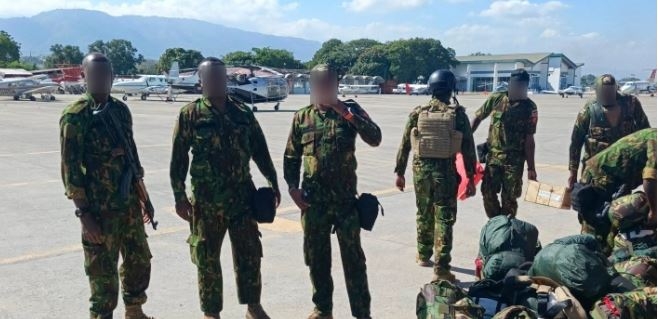A casual worker who was electrocuted as he connected irrigation pipes on the state-owned agricultural research institution will get Sh2.4 million in compensation after a protracted court battle.
Nickson Muthoka Mutavi had been engaged by the Kenya Agricultural and Livestock Research Organisation (Kalro) between January and April 2008. But barely two weeks into the job, tragedy befell him, and he suffered severe injuries.
He had been instructed to connect the pipes in Kalro’s Kiboko farm but around the working space, there were live electric wires that belonged to KPLC. As he went about his work, he came into contact with the wires and he suffered extensive burns.
Court papers and medical reports show the burns almost killed him.
The medical report from Machakos General Hospital show that Mutavi suffered third-degree burns on the right side of his abdomen equal to seven per cent of surface area. It also shows that he sustained third-degree burns on both hands, fourth-degree burns of right leg with loss of the same limb at below knee level, and third-degree burns on the left foot.
Kalro had argued that the man was solely to blame for his misfortunes because he had negligently exposed himself to danger.
It also asserted the man ought to have sued the utility firm KPLC and not Kalro as the former was the owner of the wires and had not properly installed them.
The man started his suit in the Machakos Magistrate’s court where he was unsuccessful, with the court finding that he had not proven his case.
The trial magistrate found that the accident had occurred due to the presence of an external factor – live electrical wires by Kenya Power and Lighting Company.
But Mutavi did not give up, appealing at the High Court in Machakos, emphasising it was the job of his employer to ensure his safety.
The judge found that Kalro had contributed to the accident to the extent of 20 per cent and awarded special and general damages.
Mutavi was given general damages worth Sh3 million and special damages worth Sh47,148, less 20 per cent. The court said the man will receive Sh2,437,718.
Kalro appealed the decision at the Court of Appeal where a three judge-bench heard it.
Kalro sustained its argument that it was KPLC that should have been sued by Mutavi. It argued that “KPLC had the duty of care to all citizens of Kenya to ensure that citizens were not harmed by the electricity it supplies and that the suit by the respondent should have been against Kenya Power.”
But Mutavi argued that he “was not provided with any protective gadgets like gloves, gumboots or anything else, thus subjecting him to an unsafe working environment which led to the accident.”
He also submitted that Kalro was negligent and in breach of its statutory duty in failing to give instructions to him on hazards posed by electric lines that passed through its property where he was deployed to work.
The Court of Appeal sided with the worker, finding that the High Court had rightly awarded damages because he got injured in the line of work and had not been sufficiently protected.
The judges said that even if the appellant (Kalro) was not responsible for, or in control of the electricity lines, it was under a duty to give advice, instructions or orders about the hazards posed by the live wires that passed through its premises.
They also said the appellant did not present any evidence on any safety precautions it had taken at all.
“The appellant breached its statutory duty to provide a safe place to work and was negligent in not giving any instructions on how to avoid a hazard that was at the place it deployed the respondent to work. It failed to give any protective gear to the respondent and there was no supervision provided at the place of work,” they said.
They upheld the figures given to the man as compensation.













